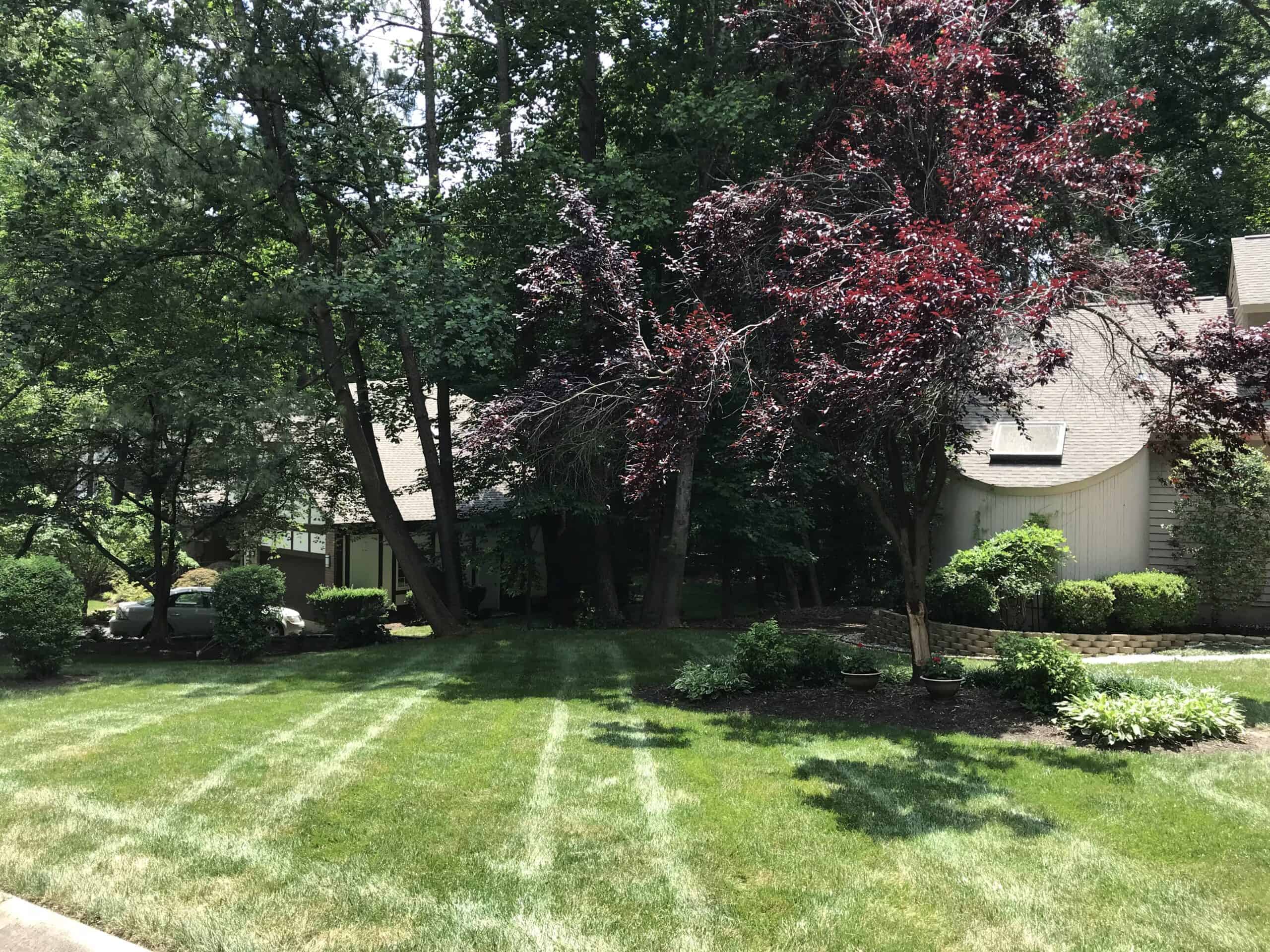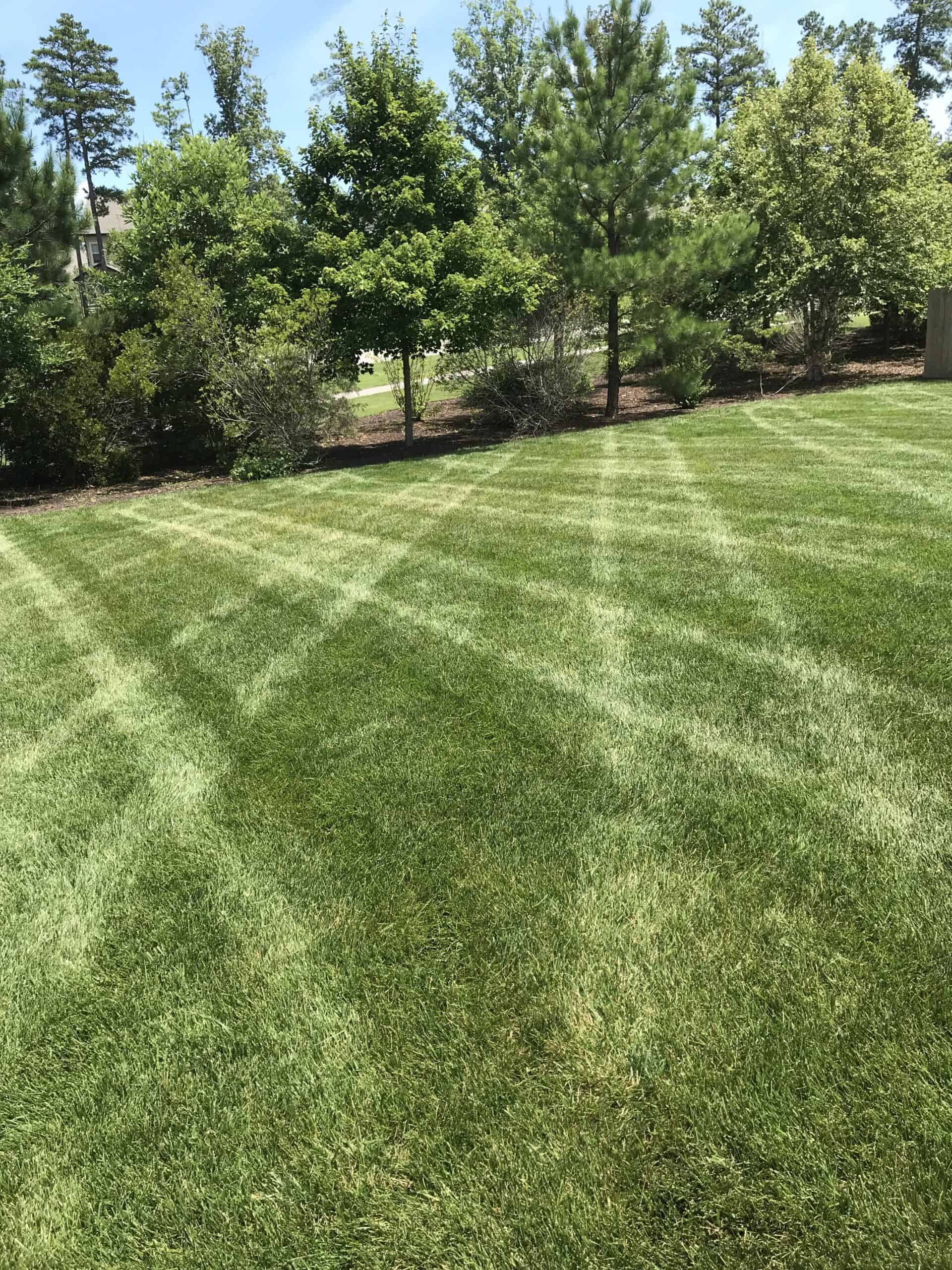Your property wouldn't be the same without adequate lawn maintenance and mowing. A beautiful yard requires more than occasional cutting and cleaning, though. Homeowners in Virginia should schedule mowing services, weed control, and seasonal cleanups as part of their yearly lawn care plan. Here is how to do that like a pro.
Mowing and Maintenance Prep DIY lawn maintenance is a cost-effective way to improve your property without a significant investment. It's also time-consuming and laborious, requiring many hours to mow grass, check soil conditions, and eliminate unwanted plant life. VA homeowners must prepare their lawns for cleaning, fixing, and landscaping, even if they do most of the work themselves.
Maintaining a lush landscape takes concentrated effort and consistency. A well-structured lawn maintenance schedule helps ensure nothing is overlooked or neglected. Planning services also save homeowners time and money on costly repairs from missed problems.
Prep your lawn by searching for water and drainage issues. Then remove debris and choose mow patterns according to your yard's growing habits. Ask professional landscaping teams in Virginia for specific information and tips regarding native plant species and local grass care practices.
A Practical Guide to Creating a Mowing Routine
Build the foundation of a thriving lawn with a carefully planned lawn maintenance regimen. Combine routine mowing services with other essential tasks to keep your yard looking fresh. Then improve the condition of your grass and soil with scheduled watering, fertilization, aeration and overseeing.
Improve your home's curb appeal with a well-maintained plot of land that helps enhance your community's aesthetic. Here is the step-by-step guide you've been waiting for:
Step One: Assess your lawn's needs.
Begin by checking out your property from corner to corner. Request lawn maintenance experts to assess soil quality and evaluate dead spots or color variations. Then identify the grass species in your yard to help develop a comprehensive mowing plan according to its unique growing behaviors.
Step Two: Determine the appropriate mowing frequency and deck height.
Your grass species will impact how often you need to mow the lawn. It will also affect your lawn care equipment, maintenance routine, and most advantageous mowing pattern. Adjust mower decks to prevent stress according to the season, or ask professionals to do it for you.
Step Three: Consider seasonal changes.
The weather never stays the same in Virginia. So, adapt to the local climate by scheduling your mowing services around typical patterns. Remember that grass grows faster in the spring and fall but slows down in the hot summer and cold winter months. Schedule snow removal services during frigid weather to protect roots and enjoy robust growth in the springtime.
Step Four: Integrate lawn aeration and mulching.
Part of your lawn care routine should be bolstering your yard's health with professional landscaping services and custom features. Take mulch installation, for example. It can help reduce weed growth and create attractive borders around landscaping, hardscaping, and outdoor structures. Meanwhile, aeration helps eliminate compacted soil, inspiring healthy tufts and flourishing shrubs.
DIY lawn maintenance is a cost-effective way to improve your property without a significant investment. It's also time-consuming and laborious, requiring many hours to mow grass, check soil conditions, and eliminate unwanted plant life. VA homeowners must prepare their lawns for cleaning, fixing, and landscaping, even if they do most of the work themselves.
Maintaining a lush landscape takes concentrated effort and consistency. A well-structured lawn maintenance schedule helps ensure nothing is overlooked or neglected. Planning services also save homeowners time and money on costly repairs from missed problems.
Prep your lawn by searching for water and drainage issues. Then remove debris and choose mow patterns according to your yard's growing habits. Ask professional landscaping teams in Virginia for specific information and tips regarding native plant species and local grass care practices.
A Practical Guide to Creating a Mowing Routine
Build the foundation of a thriving lawn with a carefully planned lawn maintenance regimen. Combine routine mowing services with other essential tasks to keep your yard looking fresh. Then improve the condition of your grass and soil with scheduled watering, fertilization, aeration and overseeing.
Improve your home's curb appeal with a well-maintained plot of land that helps enhance your community's aesthetic. Here is the step-by-step guide you've been waiting for:
Step One: Assess your lawn's needs.
Begin by checking out your property from corner to corner. Request lawn maintenance experts to assess soil quality and evaluate dead spots or color variations. Then identify the grass species in your yard to help develop a comprehensive mowing plan according to its unique growing behaviors.
Step Two: Determine the appropriate mowing frequency and deck height.
Your grass species will impact how often you need to mow the lawn. It will also affect your lawn care equipment, maintenance routine, and most advantageous mowing pattern. Adjust mower decks to prevent stress according to the season, or ask professionals to do it for you.
Step Three: Consider seasonal changes.
The weather never stays the same in Virginia. So, adapt to the local climate by scheduling your mowing services around typical patterns. Remember that grass grows faster in the spring and fall but slows down in the hot summer and cold winter months. Schedule snow removal services during frigid weather to protect roots and enjoy robust growth in the springtime.
Step Four: Integrate lawn aeration and mulching.
Part of your lawn care routine should be bolstering your yard's health with professional landscaping services and custom features. Take mulch installation, for example. It can help reduce weed growth and create attractive borders around landscaping, hardscaping, and outdoor structures. Meanwhile, aeration helps eliminate compacted soil, inspiring healthy tufts and flourishing shrubs.
 Step Five: Contact landscapers in VA.
Local landscaping and lawn maintenance companies understand the unique challenges of homeownership in Virginia. They can help you identify issues, prolong lawn longevity, and create a schedule that suits your lifestyle. Reach out to discuss your options and get a service quote to calculate an affordable budget.
Other Ways to Make the Most of Mowing
You've determined your mowing needs and scheduled services with a local company. Now what? Use the following tips to maximize your efforts and optimize your investment:
Step Five: Contact landscapers in VA.
Local landscaping and lawn maintenance companies understand the unique challenges of homeownership in Virginia. They can help you identify issues, prolong lawn longevity, and create a schedule that suits your lifestyle. Reach out to discuss your options and get a service quote to calculate an affordable budget.
Other Ways to Make the Most of Mowing
You've determined your mowing needs and scheduled services with a local company. Now what? Use the following tips to maximize your efforts and optimize your investment:
- Develop a watering routine to encourage profound root growth.
- Water lawns early in the morning or evening to minimize water loss from evaporation.
- Use grass fertilizer, aeration, and overseeding according to professional recommendations.
- Leverage grass clippings after mowing as a natural fertilizer and nutrient replacement.
- Rotate mowing patterns to prevent compaction and promote evenness.
- Maintain your lawn care equipment by sharpening blades, cleaning debris, and checking fluids.
- Plan for droughts and heavy rainfall with robust landscaping and conservation practices.
 info@ekglawn.com
info@ekglawn.com